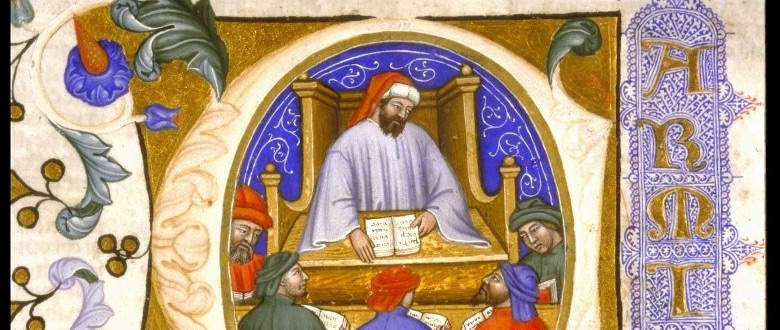From beginner-friendly introductions to classic works by Boethius, this page features books to suit any learning style. It’s important to note that there is no single best book on Boethius. The best book for you will depend heavily on your preferred learning style and the amount of time/energy you’re willing to spend reading. For example, if you tend to find classic works of philosophy difficult to understand, you might want to start with a short, beginner-friendly introduction. If you prefer more depth, you can choose a more comprehensive introduction or read Boethius for yourself.
It’s also worth noting that it is not a list of personal recommendations. Personal book recommendations tend to be highly subjective, idiosyncratic, and unreliable. This list is part of a collection of over 100 philosophy reading lists which aim to provide a central resource for philosophy book recommendations. These lists were created by searching through hundreds of university course syllabi, internet encyclopedia bibliographies, and community recommendations. Links to the syllabi and other sources used to create this list are at the end of the post. Following these links will help you quickly find a broader range of options if the listed books do not fit what you are looking for.
Here are the best books on or by Boethius in no particular order.
Boethius – John Marenbon
Category: General Introduction | Length: 272 pages | Published: 2003
Publisher description: This book offers a brief, accessible introduction to the thought of Boethius. After a survey of Boethius’s life and work, Marenbon explicates his theological method, and devotes separate chapters to his arguments about good and evil, fortune, fate and free will, and the problem of divine foreknowledge. Marenbon also traces Boethius’s influence on the work of such thinkers as Aquinas and Duns Scotus.
Boethius: The Consolations of Music, Logic, Theology, and Philosophy – Henry Chadwick
Category: General Introduction | Length: 313 pages | Published: 1981
Publisher description: The Consolations of Philosophy by Boethius, whose English translators include King Alfred, Geoffrey Chaucer, and Queen Elizabeth I, ranks among the most remarkable books to be written by a prisoner awaiting the execution of a tyrannical death sentence. Its interpretation is bound up with his other writings on mathematics and music, on Aristotelian and propositional logic, and on central themes of Christian dogma. Chadwick begins by tracing the career of Boethius, a Roman rising to high office under the Gothic King Theoderic the Great, and suggests that his death may be seen as a cruel by-product of Byzantine ambitions to restore Roman imperial rule after its elimination in the West in AD 476. Subsequent chapters examine in detail his educational programme in the liberal arts designed to avert a threatened collapse of culture and his ambition to translate into Latin everything he could find on Plato and Aristotle. Boethius has been called ‘last of the Romans, first of the scholastics’. This book is the first major study in English of a writer who was of critical importance in the history of thought.
The Cambridge Companion to Boethius – John Marenbon
Category: Overview | Length: 372 pages | Published: 2009
Publisher description: Boethius (c.480-c.525/6), though a Christian, worked in the tradition of the Neoplatonic schools, with their strong interest in Aristotelian logic and Platonic metaphysics. He is best known for his Consolation of Philosophy, which he wrote in prison awaiting execution. His works also include a long series of logical translations, commentaries and monographs and some short but densely-argued theological treatises, all of which were enormously influential on medieval thought. But Boethius was more than a writer who passed on important ancient ideas to the Middle Ages. The essays here by leading specialists, which cover all the main aspects of his writing and its influence, show that he was a distinctive thinker, whose arguments repay careful analysis and who used his literary talents in conjunction with his philosophical abilities to present a complex view of the world.
The Consolation of Philosophy – Boethius
Category: Classic | Length: 155 pages
Publisher description: Boethius was an eminent public figure under the Gothic emperor Theodoric, and an exceptional Greek scholar. When he became involved in a conspiracy and was imprisoned in Pavia, it was to the Greek philosophers that he turned. The Consolation was written in the period leading up to his brutal execution. It is a dialogue of alternating prose and verse between the ailing prisoner and his ‘nurse’ Philosophy. Her instruction on the nature of fortune and happiness, good and evil, fate and free will, restore his health and bring him to enlightenment. The Consolation was extremely popular throughout medieval Europe and his ideas were influential on the thought of Chaucer and Dante.
The following sources were used to build this list:
University Course Syllabi:
Bibliographies:
Additional Resources
You might also be interested in the following reading lists:
- The Best Introductory Philosophy Books
- The Best Books on the History of Philosophy
- The Best Books on Medieval Philosophy
The Daily Idea aims to make learning about philosophy as easy as possible by bringing together the best philosophy resources from across the internet.
- Find the best philosophy books on a wide variety of topics with this collection of over 120 philosophy reading lists.
- Find free online philosophy articles, podcasts, and videos with this organised collection of 400+ free philosophy resources.
You can also follow The Daily Idea on Facebook and Twitter for updates.
A History of Western Philosophy in 500 Essential Quotations – Lennox Johnson
Category: Reference | Length: 145 pages | Published: 2019
Publisher’s Description: A History of Western Philosophy in 500 Essential Quotations is a collection of the greatest thoughts from history’s greatest thinkers. Featuring classic quotations by Aristotle, Epicurus, David Hume, Friedrich Nietzsche, Bertrand Russell, Michel Foucault, and many more, A History of Western Philosophy in 500 Essential Quotations is ideal for anyone looking to quickly understand the fundamental ideas that have shaped the modern world.





